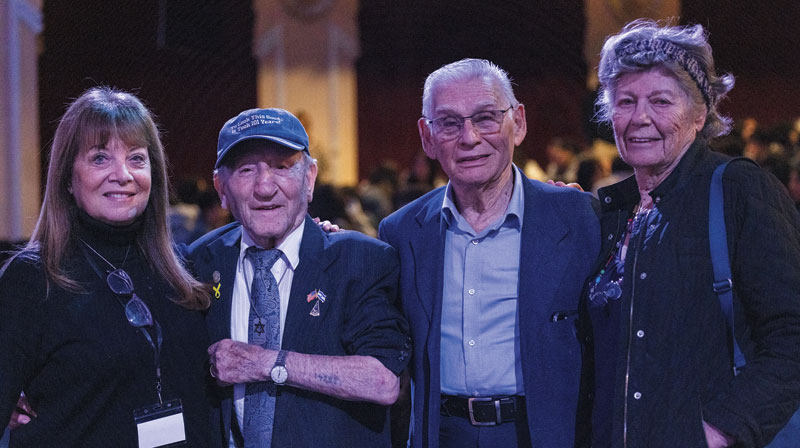
It’s remarkable how even good news and a sense of resolution can still leave everything so unsettled.
For Trump-haters everywhere — and there is no shortage of them — Joe Biden’s evident victory led to all sorts of socially-distanced celebrations, from honking car horns to clanging pots on rooftops.
This election was supposed to end a four-year nightmare.
But it hasn’t — at least, not yet. The president won’t concede defeat. President-elect Biden is being denied access to classified intelligence briefings. Recounts are underway in four states. Scores of lawsuits challenging the legitimacy of the mail-in ballots have been filed in Wisconsin, Michigan, Pennsylvania, Nevada and Arizona. Election results are still uncertified. The Electoral College is expected to have the same attendance as our suddenly empty universities.
The Supreme Court may ultimately review whether it was constitutionally permissible for Pennsylvania, and possibly other states, to have even extended the deadline for submitting mail-in ballots, which became logistically wise due to the pandemic but constitutionally suspect.
Are we headed for a sequel to Bush v. Gore? Wasn’t the original agonizing enough?
Even without contesting the results, the election demonstrated that Donald Trump is far more popular than professional pollsters, blue-state liberals and the mainstream media ever imagined. His core supporters are no negligible niche. He’s got a critical mass of dedicated Americans who will show up for rallies at night or stand in line on Election Day. They don’t mail in their votes or their overall support. They simply show up wearing red MAGA caps accessorized with red, white and blue emblems signifying their patriotic connection to an America that is exceptional, hardworking, god-fearing, and — despite the presence of so many white faces — does not have a trace of racism to be found.
The election may still be uncertified, but there is certitude about an electorate divided almost entirely in half. The decision to wear a mask is as much a metaphor symbolizing our ideological separation as it is a public health measure.
Should these ballot disputes come to an end without overturning the results, and should Donald Trump resign himself to a one-term presidency, Democrats must contend with the reality that neither he nor his supporters are going away.
Trump will surely become the most obstreperous, back-benching political gadfly in human history. When President Ronald Reagan took office, his vanquished predecessor, Jimmy Carter, returned to Georgia quietly. President George H. Bush, defeated by Bill Clinton, paid him the respect of not spending the next four years trying to settle the score.
Does anyone believe that Donald Trump will go off into the night demurely, his ambition confined to reviving “The Apprentice?”
All day long, Trump will tweet his dissatisfaction with the Biden administration. He’ll anchor a nightly Fox News show dedicated to debunking the Biden White House. He’ll instantly commence an electoral challenge for 2024. And with Democrats having lost seats in the House and unlikely to gain control of the Senate, the Biden administration will be hampered by a resurrected, redirected Trump writ large.
So much for ambivalent good news.
It didn’t end there. Pfizer and Moderna each announced results of clinical trials for a COVID-19 vaccine that has proven to be 90% and 94% effective, respectively. Operation Warp Speed arrived just in time to provide a booster shot for the national psyche. Except that half the country is fearful of the vaccine and its possible side effects and will refuse to take it. Meanwhile, Pfizer and Moderna are reporting that they will not be able to produce more than 70 million doses of the vaccine before the end of 2020, which must be taken twice—meaning that for the foreseeable future, only 35 million Americans will be vaccinated, if that many.
We are still far away from an overall COVID-19 cure. Herd immunity is looking like a better, more immediate option all the time, but that’s like running with the bulls in a leper colony. It will take years for everyone to be vaccinated, and God knows how many more deaths. And we still don’t know how long the immunity will last, whether it will prevent the spread of the virus, the long-term consequences of taking the vaccine, and the lingering effects of having had the virus. Moreover, storing the vaccine will be a challenge, with a shelf life that demands South Pole temperatures.
Get ready for a future that will require annual COVID-19 shots.
And that’s why, with everything in abeyance, the existential question remains: To lockdown, or not to lockdown? Are churches, synagogues and mosques public health hazards or salvation for the spiritually unmoored and overly anxiously? Is it fair to deprive people of their God even though houses of worship are ecclesiastical petri dishes? Businesses that are not conducting business are shuddering, shuttering every day.
Similarly, younger generations have finally surrendered their invincibility. Job prospects are getting grimmer. Romances now come with quarantines. This was supposed to be the time of their lives. All this pent-up regression has made them understandably bitter. True cosmopolitans require vibrant bars, clubs, museums, and theaters. All that’s left for them now is high rent.
They want out, but where to?
Meanwhile, college students are confined to dorm rooms without roommates. Classes are taken online. Football games and frat parties are from bygone eras. Campus COVID-19 protocols are everywhere and strictly enforced. Living at home with their parents offered more excitement.
Everyone else is so bored, Schitt’s Creek — not the show, but the actual place — is where most wish to go.
Perhaps this grim state of affairs explains Trump’s appeal to the heartland, where only bank robbers wear masks. Rugged American individualism always defined the open range. Prairies had been naturally inoculated from diseases that passed so easily among those living in tenements, housing projects, and even on Park Avenue. Even AIDS was widely viewed as restricted to Greenwich Village and the Castro District.
Only now do we see disturbingly growing infection rates of COVID-19 in states that, mistakenly, were thought to be immune.
We must all resign ourselves that the pandemic, coinciding with further presidential instability, is not over.
We must all resign ourselves that the pandemic, coinciding with further presidential instability, is not over. We adapted so well, partly because we believed our dire circumstances to be short-lived. The resources we developed in reimagining our lives will have to serve us a bit longer. Some may never leave, even after we become less contagious to one another.
Thank goodness the election and vaccine announcement finally put our minds to rest.
Thane Rosenbaum is a novelist, essayist, law professor and Distinguished University Professor at Touro College, where he directs the Forum on Life, Culture & Society. He is the legal analyst for CBS News Radio. His most recent book is titled “Saving Free Speech … From Itself.”























 More news and opinions than at a Shabbat dinner, right in your inbox.
More news and opinions than at a Shabbat dinner, right in your inbox.